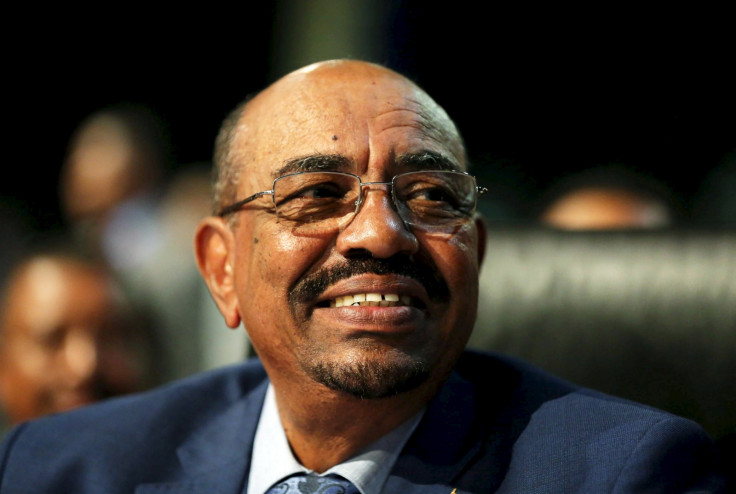Sudan: 1,400 South African soldiers 'held hostage' in Darfur over Omar al-Bashir drama - reports denied

Update: 17 June, 10.00am
The South African National Defence Force (SANDF) has denied media reports claiming its soldiers were held hostage in Sudan.
"I would like to assure the nation that our troops who are under the United Nations are safe and are continuing their work," said South African Defence Ministry's Siphiwe Dlamini.
"There is absolutely no truth in these reports. There is no iota of truth in these allegations. There is equally no substance to support these allegations. The SANDF did not come under any threat during this period," said the SANDF in a statement.
Original story
South African peacekeeping soldiers were allegedly "held hostage" in Darfur until Sudan president Omar al-Bashir was allowed to travel back to Khartoum, South African media and the secretary of the country's largest military union have reported.
Netwerk24 reported that 1,400 South African troops stationed in the western Sudanese region were held captive by Sudanese troops when Bashir, who is wanted by the International Criminal Court (ICC) for alleged atrocities committed during the Darfur conflict, was barred from leaving South Africa.
The Sudanese army withdrew only once Bashir, who was in South Africa for an African Union (AU) summit, left Johannesburg pre-empting a Pretoria high court ruling ordering his arrest.
One South African soldier was quoted as saying: "We were so scared - we were surrounded by soldiers. We handed out extra ammunition to all our troops in case they needed it."
The Sudanese troops reportedly surrounded military bases in Kutum, Mellit and Malha. South African soldiers were placed in a state of combat readiness, according to another soldier.
"We would have had to surrender to save our lives, because you can't fight a country's army with a poorly equipped battalion," said a third soldier.
Pikkie Greef, national secretary of the South African National Defence Union, told Eye Witness News that the incident was confirmed by several sources. "The Sudanese army only withdrew from their position once al-Bashir left South Africa. This would boil down to blackmail by threatening someone with war".
A representative from the South African military told Erika Gibson, author of the exclusive, that there was "Sudan military traffic" in Darfur but no serious threat to the troops.
The Sudanese army denied the report, telling Bloomberg that "there is no military conflict between the two nations to involve the army".
Bashir's travels have drawn scrutiny since the ICC charged him with 10 counts including genocide, war crimes and crimes against humanity for sending the army and backing militias in the bloody crackdown in Darfur, a Sudanese region, in 2003. The UN said fighting in the impoverished Darfur led to the deaths of 300,000 people and created more than two million refugees.
The ICC, which is based in The Hague, issued an arrest warrant for Bashir in 2009. The Sudan president denies the charges.
© Copyright IBTimes 2025. All rights reserved.




















